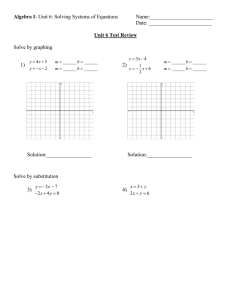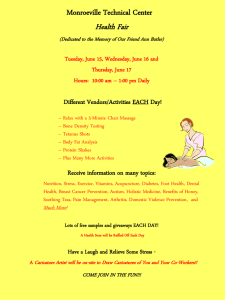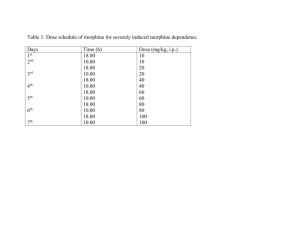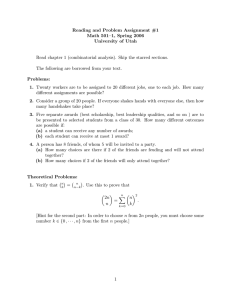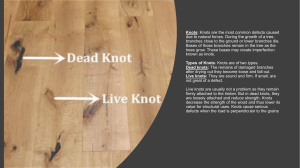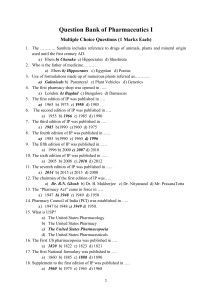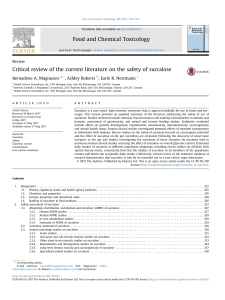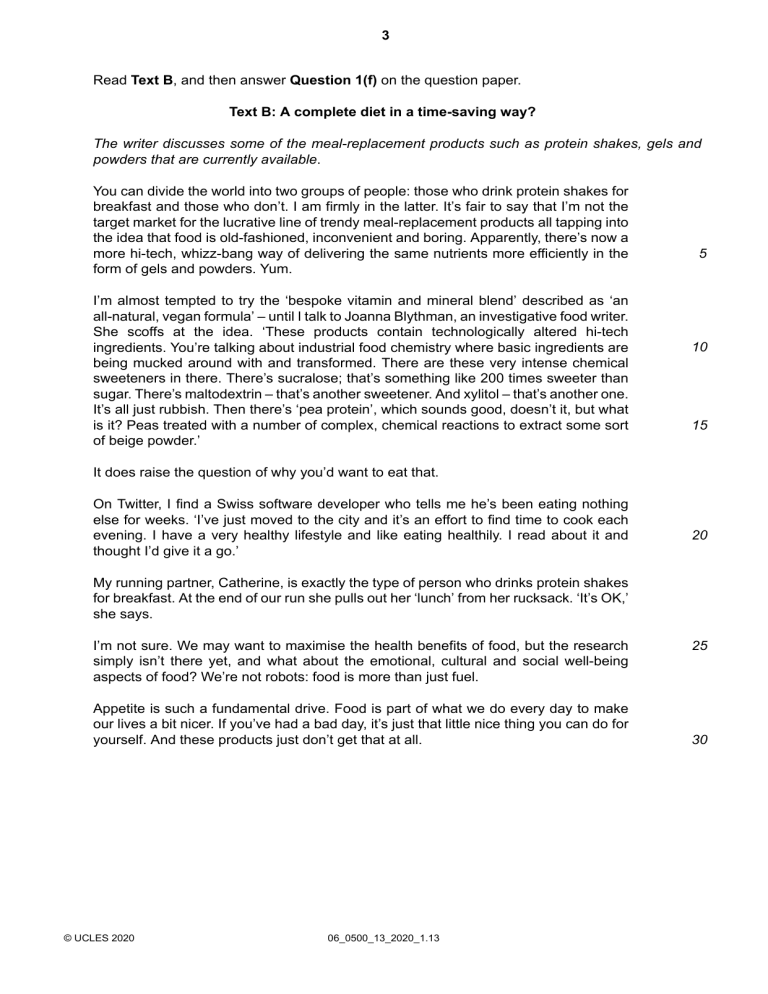
3 Read Text B, and then answer Question 1(f) on the question paper. Text B: A complete diet in a time-saving way? The writer discusses some of the meal-replacement products such as protein shakes, gels and powders that are currently available. You can divide the world into two groups of people: those who drink protein shakes for breakfast and those who don’t. I am firmly in the latter. It’s fair to say that I’m not the target market for the lucrative line of trendy meal-replacement products all tapping into the idea that food is old-fashioned, inconvenient and boring. Apparently, there’s now a more hi-tech, whizz-bang way of delivering the same nutrients more efficiently in the form of gels and powders. Yum. I’m almost tempted to try the ‘bespoke vitamin and mineral blend’ described as ‘an all-natural, vegan formula’ – until I talk to Joanna Blythman, an investigative food writer. She scoffs at the idea. ‘These products contain technologically altered hi-tech ingredients. You’re talking about industrial food chemistry where basic ingredients are being mucked around with and transformed. There are these very intense chemical sweeteners in there. There’s sucralose; that’s something like 200 times sweeter than sugar. There’s maltodextrin – that’s another sweetener. And xylitol – that’s another one. It’s all just rubbish. Then there’s ‘pea protein’, which sounds good, doesn’t it, but what is it? Peas treated with a number of complex, chemical reactions to extract some sort of beige powder.’ 5 10 15 It does raise the question of why you’d want to eat that. On Twitter, I find a Swiss software developer who tells me he’s been eating nothing else for weeks. ‘I’ve just moved to the city and it’s an effort to find time to cook each evening. I have a very healthy lifestyle and like eating healthily. I read about it and thought I’d give it a go.’ 20 My running partner, Catherine, is exactly the type of person who drinks protein shakes for breakfast. At the end of our run she pulls out her ‘lunch’ from her rucksack. ‘It’s OK,’ she says. I’m not sure. We may want to maximise the health benefits of food, but the research simply isn’t there yet, and what about the emotional, cultural and social well-being aspects of food? We’re not robots: food is more than just fuel. Appetite is such a fundamental drive. Food is part of what we do every day to make our lives a bit nicer. If you’ve had a bad day, it’s just that little nice thing you can do for yourself. And these products just don’t get that at all. © UCLES 2020 06_0500_13_2020_1.13 25 30
